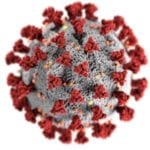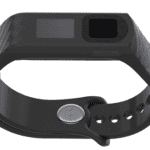The US Army is going to use wearable Fitbit devices to track signs of potential COVID-19 infection.

As NextGov reports, the arrangement comes as a result of the Army-backed Medical Technology Enterprise Consortium’s Request for Project Proposals concerning the development of wearable devices that could detect the early symptoms of infection. The Consortium was prepared to offer $25 million for 10 projects, and Fitbit ultimately won a claim to $2.5 million from that pool.
Fitbit has been tailoring its wearable biometric technology for this purpose since May. So far, its algorithm has detected 2,700 COVID cases among 187,500 volunteers in North America. The company estimates that it can detect almost 50 percent of COVID cases a day before a given subject detects symptoms.
There has been growing interest in COVID-detecting wearables in recent months, both in the military and more broadly. The military’s Defense Innovation Unit started trialling the use of a Garmin smartwatch and the Oura smart ring for COVID detection in June, for example; and just last week, biometric wristband maker WHOOP announced $100 million in new funding, thanks in part to the company’s rising profile in COVID detection in the sports world.
For its part, Fitbit’s contract win with the Medical Technology Enterprise Consortium means that the company will move onto the next phase in trailing the technology, which entails the provision of its COVID-tailored wearable devices to researchers at Northwell Health’s Feinstein Institutes for Medical Research.
In a statement, Fitbit’s SVP of Fitbit Health Solutions, Amy McDonough, expressed confidence in the technology’s capabilities. “We believe Fitbit is uniquely positioned to deliver on USAMRDC’s goals based on our deep wearables expertise and established user base of nearly 30 million users, our early research in machine learning algorithms for detection of pre-symptomatic COVID-19, and our production and manufacturing capabilities to scale solutions and make them available quickly,” she said.
Source: NextGov
–
November 3, 2020 – by Alex Perala







Follow Us